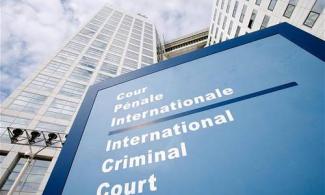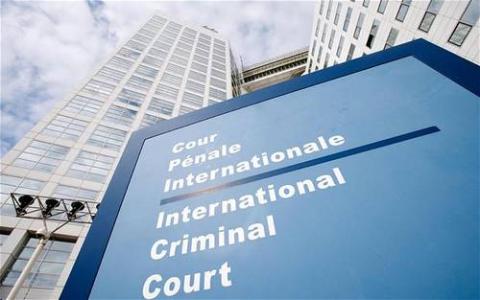
The ICC expressed its disappointment in its latest report showing findings of preliminary examination activities in countries experiencing terrorism activities.

The International Criminal Court, through the Office of the Prosecutor, has slammed the Nigerian Government for failing to prosecute security forces and Boko Haram terrorists for crimes against humanity.
The ICC expressed its disappointment in its latest report showing findings of preliminary examination activities in countries experiencing terrorism activities.
According to the ICC, there have been a wide range of crimes against humanity committed in Nigeria but only little effort from the government to punish perpetrators.
While the international court acknowledges that the Nigerian authorities appear to have taken a number of steps towards ascertaining the criminal responsibility of alleged perpetrators, it reckons that the investigative and prosecutorial activities undertaken to date in relation to both members of Boko Haram and security forces have been limited both in their scope and depth.
It said, “The Office has examined information regarding a wide range of alleged crimes committed on the territory of Nigeria. The Office has been able to arrive at subject-matter determinations on the majority of allegations concerning crimes against humanity and war crimes allegedly committed by Boko Haram members and members of the NSF from 2009 until early 2019.
“There was a reasonable basis to believe that between 1 January 2013 and 31 March 2015, both Boko Haram and the NSF committed crimes under the ICC’s jurisdiction, including war crimes and crimes against humanity.
“With respect to sexual and gender-based crimes and crimes committed against children, the Office previously found a reasonable basis to believe that Boko Haram’s specific targeting of both females and males constitute acts of persecution on gender grounds.
“The Office has also found during the reporting period a reasonable basis for believing that members of the NSF persecuted on gender grounds military aged males suspected of being Boko Haram members or supporters.
“Other allegations that the Office has been reviewing include allegations with respect to the conduct of the NSF against members of the Indigenous People of Biafra and communal violence in Nigeria’s North Central and North East geographical zones.
“The information available suggests while some investigation and/or prosecutorial steps have been or are being taken by the authorities to ascertain the criminal responsibility of suspected Boko Haram members, these appear limited in scope and depth.
“With respect to allegations against members of the NSF, the information available similarly indicates only a limited number of proceedings have been conducted against members of the NSF.
“These include the absence of legislative provisions addressing certain categories of conduct; the persistence of the armed conflict; inadequate investigation files; an over-reliance on confession-based evidence; a lack of forensic evidence; limited cooperation between investigators and prosecutor at pre-investigation stages; logistical difficulties, inadequate security for counsels, and the challenges of converting military intelligence to admissible evidence.
“In particular, according to the information available, it does not appear that the authorities are investigating and/or prosecuting cases concerning substantially the same conduct or cases that are otherwise similar to those identified by the Office. To date, the repeated commitment of the Nigerian authorities to provide the Office with relevant information in this respect has not materialised.
“During 2020, the Office will continue to urge the Nigerian authorities to tangibly demonstrate that they are indeed fulfilling their primary responsibility to investigate and prosecute ICC crimes, in the absence of which the Office will need to come to its own determination with respect to the admissibility of the potential cases it has identified.”